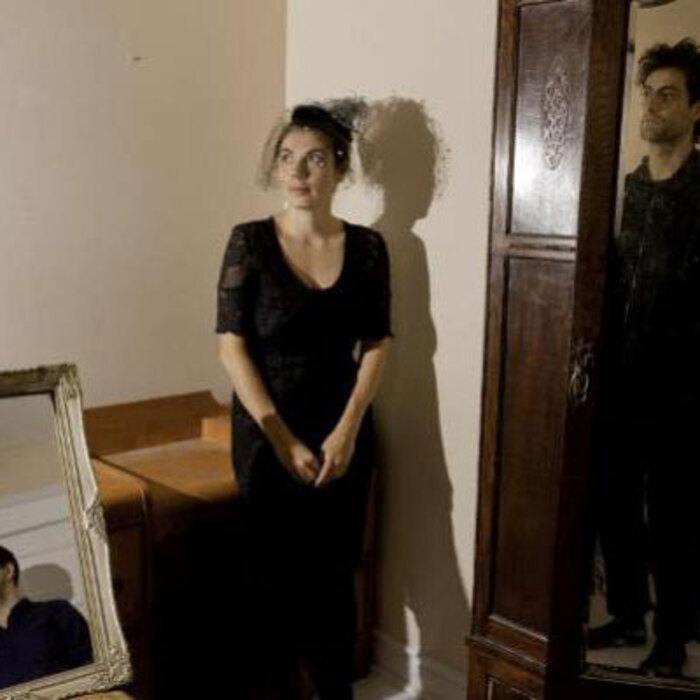Purveyors of: Creaky, creepy caravan folk
File next to: The Microphones, Dirty Three
Across 15 years, through pivotal periods in Toronto’s musical maturation; through six releases and several line-ups, Picastro have issued forth challenging, emotional and dense music — music that has lost none of its intensity or character, demanding ever to be foreground. Picastro’s work is not crafted from the clapboard of Ikea cabinetry, but hewn from the gnarled and knotted wood of bleak copses. We caught up with head Picastrian Liz Hysen to discuss then, now, Fassbinder and Picastro’s newest release, You.
Picastro in 1998 versus Picastro in 2014 — what’s changed?
I don’t question my choices as much now in terms of songwriting. I can feel it, and always have — but in the past, I think I was being too loose in terms of composition, and that can be dangerous. I also don’t care now if someone compares me to a musician I have never heard of or kind of hate. I know what I sound like, and no one else does it.
Picastro have often pitted traditional instrumentation against noise and atonality — is this a conscious device or something that is just a natural part of the composition process?
I don’t see the point of making anything — music, art, food — without pushing it forward. I have no interest in creating something that already exists. I make music for myself first and hope others will like it. What’s the expression — necessity is the mother of invention? I needed this music for myself because it didn’t exist. Atonality and pop structures can co-exist and I know that’s not what everyone wants to listen to, but there are lots of people who get into it just by the mood, which is a pretty big factor as well.
Mood is a big element of the Picastro “experience.” How would you describe the mood and character of the songs on You, collectively? Is there anything that unites them?
It’s a pretty empathetic record. The songs don’t really have a unifying theme aside from their humanness. It’s meant to relate to a lot of people and situations. I think each song is almost a different character in a way. It’s a Robert Altman movie! (laughs)
During the writing and recording of You, was there anything you were reading, watching, listening to that had a palpable influence on the material? There’s a sort of woodsy darkness to the record, it feels very Brothers Grimm, in a way.
I really searched [for inspirational material] this time and didn’t find much. I read a bunch of David Foster Wallace and it didn’t work. There’s some residual Fassbinder on there for sure in terms of the lyrics. The mood is always hard to pin down — that’s interesting you bring up the woods! I often wonder if [our music] is more suited to people who live in cold climates. I don’t know if I’d make the same music if I lived in southern California or something.
You’ve been at this for a while — do you ever find yourself asking why you make music, or struggle with finding a “reason” to go on creating?
No. I think once you’re a musician, you’re a musician. It doesn’t go away. I make it automatically, there doesn’t have to be a reason. Maybe to keep myself company and others company? I mean, it would be hard to keep going if I thought no one was listening to it, but people do listen to it so that’s enough for me! It’s pretty awesome to go somewhere far away and have people who are so into it, there’s so much hope and positivity when that happens.
Picastro play Wavelength at Cinecycle this Wednesday in honour of the release of their latest album, You. You, as in “You,” should amble down to CineCycle and prepare to look at, listen to, and feel things.
— Interview by Dean Williams

